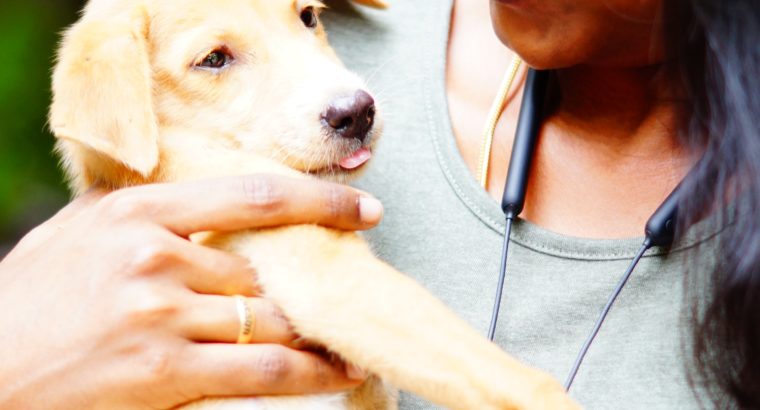How Veterinarians Give Back to Their Local Communities
Veterinarians do more than just diagnose and treat medical conditions in animals; they give back to local communities. To become a veterinarian, an individual must swear to use his or her knowledge “for the benefit of society” during the Veterinarian’s Oath. As a result, they frequently perform activities outside their clinic’s normal operations to nurture local communities. Below are several common ways that veterinarians give back to local communities.
Reduced-Fee Spaying and Neutering
Many veterinarians offer reduced fee-spaying and neutering services. As explained by the American Veterinary Medical Association (AVMA), spaying and neutering helps to prevent unwanted litters. Millions of dogs and cats — as well as other pets — end up in animal shelters each year. Unfortunately, many of these dogs and cats are never adopted, which is why spaying and neutering is important.
Not all owners can afford to have their pet spayed or neutered. If an owner is experiencing financial hardship, though, he or she may turn to the reduced-fee services of a veterinarian. During certain times of the year, some veterinarians will offer spaying and neutering services at a reduced price.
Volunteer Work
You’ll often see veterinarians volunteering at animal shelters, rehabilitation centers, clinics and other animal care establishments. Veterinarians have a plethora of skills pertaining to the wellbeing of animals. Therefore, they are needed at an equally diverse range of establishments. Volunteering allows veterinarians to give back to local communities by assisting nonprofit, government and private animal care facilities, all of which directly help local pets and pet owners.
Volunteering is particularly useful for new veterinarians who just recently obtained their Doctorate of Veterinary Medicine (DVM). If a veterinarian is fresh out of DVM school, he or she may want to test the waters by volunteering. Volunteering isn’t the same as an internship. When volunteering, a veterinarian will provide his or her services for free, whereas an internship is a low-pay training position. While there’s no financial inventive in volunteering, it allows veterinarians to gain real-world experience while giving back to local communities in the process.
Local Sponsorships
Another way that veterinarians give back to their local communities is through sponsorships. If you’ve ever attended a youth-league sports game, for example, you may recall seeing banners featuring the names and logos of local businesses. Youth-league sports organizations sell these sponsorship placements to local businesses, including veterinary clinics. It provides the organizations with essential funds to keep their sports games going. At the same, local sponsorships such as this are beneficial to veterinarians because it exposes their brand to new prospective clients.
Some of the different types of local sponsorships in which veterinarians participate include:
- Youth-league sports games
- Local schools
- Local parades and events
- 4-H Club
- Boy Scouts
- Girl Scouts

Charity Donations
Some veterinarians make monetary donations to local charities. In fact, one survey found that donations to animal-related charities was the second-most common community program in which veterinarians participate. Like most charities, animal-related charities rely on donations to fund their operations. If an animal-related charity is unable to secure donations, it may struggle to perform its mission, such as rescuing abandoned or abused pets.
Veterinarians typically earn a lucrative salary, so they’ll often share their wealth in the form of donations to animal-care charities. Donations keep charities afloat so that they can continue to care for animals in their respective community.
Free or Reduced-Fee Rabies Vaccinations
In addition to spaying and neutering services, many veterinarians offer reduced-fee — or even free — rabies vaccinations. A viral infection of the central nervous system, rabies is a serious disease that can prove fatal in dogs and cats. Furthermore, when dogs and cats are infected with rabies, they can spread the potentially fatal disease to humans through biting.
To protect both animals and people from rabies, many veterinarians offer free or reduced-fee rabies vaccinations for pets. Vaccination is a simple process that typically involves one doss of an injectable solution consisting of the inactivated rabies vaccine. It’s important to note that most states require certain animals, such as dogs, to be vaccinated against rabies by a certain age. Nonetheless, there are millions of unvaccinated pets that, if exposed to the rabies virus, could become infected.
Educational Tours and Events
More and more veterinarians are opening their clinic’s doors for free educational tours and events. Some clinics, for example, partner with schools so that children can visit and see how they work. During the tour, children can walk through the clinic while listening to staff members talk about its operations. It’s a great way for veterinarians to educate children about the veterinary industry and why it’s important.
Other clinics host special educational events for pets and their owners. A clinic may host a puppy education class where owners can learn how to properly care for their puppies, or it may host nutritional classes to help owners choose the right pet food.

